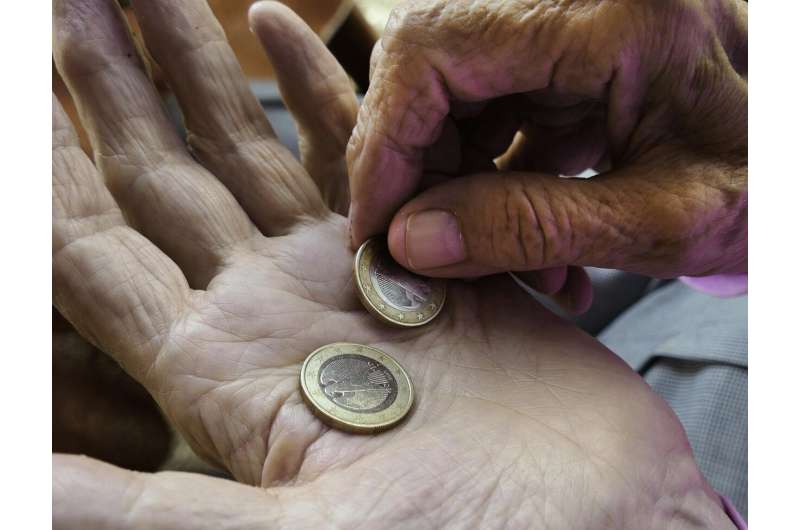Basic income could cut poverty to lowest level in 60 years at no net cost

A new universal basic income model could cut poverty by more than half at no net cost, reducing it to its lowest level for 60 years, according to a report co-authored by a University of York academic.
On the 80th anniversary of the historic Beveridge Report, the new research by the Basic Income Conversation and Compass represents the most substantive attempt yet to assess the impact of a basic income (UBI) scheme and the greater income security it provides.
The fiscally neutral scheme involves no additional calls on the public finances and no net increase in taxation: the cost of the extra payments would be exactly offset by the extra revenue from internal changes in tax rates and National Insurance Contributions, the report's authors say.
Changes
Under the model, compared to the current system:
- Child poverty falls by more than a half to 12.5%, taking it to below the level of 14.0% in 1977.
- Working-age poverty falls by just over a quarter, from 19.4% to 14.9%.
- Pensioner poverty falls by 54%, from 16.7% to 7.7%. This takes the level of pensioner poverty to well below the lowest post-1961 rate of 14% in the early 1980s.
- The Gini coefficient—a summary measure of inequality—falls by 12.5%, taking it back towards the peak equality achieved in the 1970s.
- The gains are concentrated among the poorest and the losses among higher-income groups.
The model involves two broad sets of changes to the existing tax and benefit system:
- A guaranteed set of weekly payments which provide an income floor. These are £41 per child and £63 per adult of working age, making a guaranteed payment of nearly £11,000 a year for a family of four.
- A series of tax adjustments pay for the weekly basic income: the changes involve lowering the personal allowance to £750, a rise in existing tax rates of 3p in the pound and a change in the current system of National Insurance Contributions.
As well as ensuring fiscal neutrality, these changes ensure that the gains are concentrated among the poorest, the report concludes.
Evidence
Professor Kate Pickett, from the University of York's Department of Health Sciences and one of the author's of the report, said: "Here is the evidence that a Universal Basic Income is affordable and beneficial —imagine how good it would feel to be tackling child poverty while enhancing everybody's financial security. This could be a giant step forward to a better post-COVID world."
Neal Lawson, Director of Compass, added: "At a time of skyrocketing poverty, this report shows universal basic income can take us back to the lowest level of child poverty in over 50 years at no net cost to the Treasury.
"In showing universal basic income can deliver record low levels of poverty with no extra burden on the nation's finances, this report makes transformative change a political decision not an economic one."
More information: Tackling Poverty: The Power of a Universal Basic Income. www.compassonline.org.uk/publi … versal-basic-income/
Provided by University of York




















